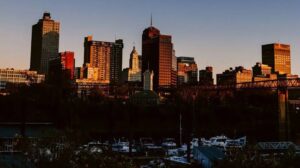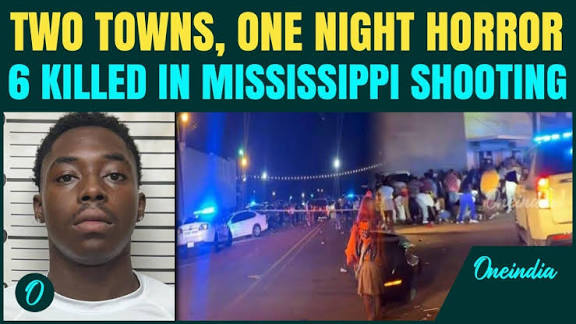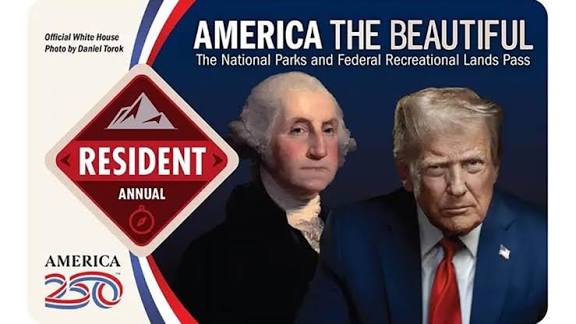Tensions Rise as Memphis Faces Crime Surge & Federal Action

President Donald Trump on Friday announced that his administration would target the memphis as part of his efforts to tighten the crime. Today we will discuss about Tensions Rise as Memphis Faces Crime Surge & Federal Action
Tensions Rise as Memphis Faces Crime Surge & Federal Action
Memphis, Tennessee, has long endured the challenges of urban crime, economic disparity, and fraught relations between law enforcement and communities. But recent developments have brought these tensions into sharper relief. With alarming crime statistics, growing public frustration, and federal intervention now on the table, the city stands at a crossroads. The decisions made in the coming weeks and months could chart the course not only for public safety, but for community trust, civil rights, and political power across Tennessee and beyond.
The Crime Surge: What the Numbers Show

Recent years have seen Memphis setting grim records. In 2023, the city ended the year with 397 homicides, the highest on record.
This exceeded its previous records and raised alarms among residents, local government, and law enforcement alike. Property crimes, gun violence, street crime, and gang activity remain pervasive, particularly in neighborhoods with high poverty and limited resources.
While some crime categories are showing modest declines—certain violent crimes and aggravated assaults are reported down in some precincts—overall homicide rates and gun‐related offenses show limited improvement.
The Federal & State Response: New Pressure Points
Given the severity of the situation, state and federal authorities have escalated their involvement.
Operation Viper: An ongoing FBI mission has been brought to bear in Memphis, in partnership with state and local forces, targeting violent offenders. Gov. Bill Lee has expanded the Tennessee Highway Patrol (THP) presence in Shelby County with dozens more troopers.
Violent Crime Initiative (VCI): As part of broader Justice Department efforts, federal prosecutors from the Violent Crime and Racketeering Section, analysts, ATF, FBI, U.S. Marshals, and local police have coordinated to target gangs and other criminal enterprises.
National Guard Deployment: As of September 2025, President Donald Trump has announced plans to send National Guard troops to Memphis, labeling it “deeply troubled,” and citing support (claimed) from both the city’s Democratic mayor, Paul Young, and Republican Governor Bill Lee.
These actions reflect a shift toward more aggressive, resource‑intensive responses. State and federal entities are no longer just supplementing local law enforcement—they are increasingly asserting roles in direct enforcement, oversight, and accountability.
Civil Rights, Policing, and Local Pushback
As with all such escalations, there is a countercurrent of concern and resistance, primarily focused on issues of civil rights, police accountability, and the potential misuse of power.
Justice Department Investigation: Following the death of Tyre Nichols in early 2023, the DOJ conducted a civil rights investigation into the Memphis Police Department (MPD). The findings were damning: the MPD was found to engage in systemic excessive force, discriminatory practices, and deficiencies in training and accountability.
Policy Reversals & Legal Conflict: In response to past reforms—including those intended to limit pretextual traffic stops (e.g. stops for minor violations used as a pretext for discovering more serious infractions)—the Tennessee state legislature under Republican control has pushed to undo or limit local ordinances. Some bills signed by Gov. Lee roll back parts of Memphis’ control over policing policy. Critics argue these reversals signal state overreach eroding municipal autonomy.
Community Trust & Local Government Views: City, county, and neighborhood leaders are expressing both support and concern. Some welcome federal help and increased policing resources; others worry about militarization, civil liberties, and whether resources are going toward prevention (jobs, education, housing) rather than simply enforcement. Mayor Young has reportedly preferred financial‑aid, prevention and intervention programs over purely militarized approaches.
Political Stakes: Local, State & National
These tensions are not just policing issues—they lay bare deeper political fault lines.
Partisan Conflict: Memphis is governed by Democratic mayoral leadership, though Tennessee is a strongly Republican state. The federal push for Guard deployments, plus state legislative efforts to limit local policing reforms, is viewed by many as aligned with partisan politics. Critics see attempts to portray “law and order” themes in Democratic cities as part of a broader political strategy.
Civil Rights & Race: Memphis has a large Black population and a sharp history of race‐based disparities in justice and policing. The Tyre Nichols case and ensuing DOJ findings have reignited debates over systemic racism in law enforcement. For many, measures that shift control away from local reforms threaten progress in accountability.
Public Safety vs. Liberty: There is growing debate over where to draw the line between safety measures (e.g. fortifying law enforcement resources) and preserving civil liberties (rights to protest, limits on police force, judicial oversight). The involvement of National Guard forces is particularly charged: it raises questions about military roles in domestic law enforcement and how power is allocated.
On the Ground: Impacts and Responses
Memphis residents are experiencing this tension first‑hand, and responses from the ground are varied.
Neighborhood Safety Efforts: The city and county have established a Joint Office of Neighborhood Safety and Engagement. This initiative aims to use data to identify crime hotspots and deploy localized interventions, from community engagement to improved services.
Focus on Gun Violence: With homicides often involving firearms, city leaders are partnering with federal prosecutors to enhance the prosecution of gun crimes. Dedicated U.S. Attorneys in certain precincts are being assigned to focus specifically on gun crimes.
Law Enforcement Intensification: More troopers, more federal task forces, more surveillance, more arrests—especially of repeat offenders. Some of these measures are welcomed by people who feel unsafe; others fear they will disproportionately target marginalized groups without addressing root causes.
Critical Challenges & Underlying Problems
No approach will succeed without recognizing the structural issues that contribute to crime in Memphis. These include:
Poverty and Inequality: Nearly 24% of Memphis residents live below the poverty line, more than twice the national average. Economic opportunity is uneven, and many areas suffer from poor infrastructure, failing schools, limited access to health care, and insufficient social services.
Community Disinvestment: Long‑term decline in investment in certain neighborhoods fosters hopelessness and lack of social mobility. When public services, recreation, youth programs, or affordable housing are weak or absent, crime can fill the void.
Trust & Legitimacy: Without broad public trust, policing efforts—even well intended—can generate backlash, reduce cooperation, and worsen fears. Incidents like Tyre Nichols, and reported patterns of excessive use of force, erode confidence. Community oversight is fragile and often contested.
Legal & Policy Constraints: Local reforms are sometimes overridden by state law; federal interventions require legal frameworks that protect civil rights. Tension exists between sovereignty of local governance and power of state/federal bodies.
Complexity of Crime Dynamics: Crime is not monolithic. Gang activity, drug trade, mental health crises, homelessness, education system failures, domestic violence—these all interconnect. A purely enforcement‑based response may reduce certain metrics but will leave others unaddressed.
Possible Paths Forward: Balancing Enforcement with Prevention
Given the severity and multifaceted nature of the problem, what might be the way forward that balances safety with rights, and enforcement with prevention?
Strengthened, Transparent Oversight: Implementation of robust civilian oversight boards with actual power; full, independent investigations of misconduct; transparent use of body cameras and public reporting of policing data. Accountability must be seen and felt.
Community‑led Interventions: Investment into youth programs, employment opportunities, rehabilitation and reentry services, mental health support. Local nonprofits, faith communities, and grassroots groups should be partners—not only subjects—of plans to reduce crime.
Targeted Policing with Safeguards: Use of data to focus on repeat violent offenders rather than broad sweeps; clear procedural limits on tactics; emphasis on de‑escalation; legal guardrails to prevent abuses.
State & Federal Support for Social Infrastructure: Financial resources for housing, schools, public health, public transit. Crime doesn’t happen in a vacuum: social determinants matter. Federal grants, state budgeting, philanthropic investment all have roles.
Policy Stability & Local Control: Allowing Memphis greater autonomy over local policing policies where reforms have local legitimacy, while ensuring state law supports—not undermines—those efforts. This will require negotiation and possibly new legal frameworks.
Risks of the Wrong Moves
Without careful navigation, the response risks:
Militarization of Policing: Overusing National Guard or similar forces can heighten fear, escalate conflicts, and reduce trust, especially if not constrained.
Rights Violations: Civil liberties could be compromised—pretextual stops, racial profiling, excessive use of force.
Political Polarization: Crime becomes political ammo; some residents may feel targeted by partisan strategies. Trust in institutions could erode further.
Short‑term Fixes with Long‑term Costs: Arrests and deployments may reduce headline crime temporarily, but unless underlying issues are addressed, violence can shift or rebound.
Displacement & Inequality: Aggressive policing often displaces crime, or pushes marginalized communities into more precarious circumstances without improving overall safety.
What to Watch Next
In the coming period, certain indicators will matter:
Whether the National Guard deployment becomes concrete: numbers, roles, oversight.
Data on homicides, gun violence, aggravated assault over the next months: do they decline meaningfully?
The results of ongoing DOJ or state investigations into police practices: will accountability follow?
Legislative actions at the state level regarding policing reforms, traffic stop laws, local ordinances.
Community sentiment: protests, public meetings, trust surveys.
Resource allocations: how much is invested in prevention vs enforcement.
Conclusion: A Moment of Reckoning
Memphis is at a critical juncture. The city’s crime surge has triggered strong responses—from local to federal—and those responses carry both promise and peril. Enforcement alone will not reverse decades of inequality, mistrust, and underinvestment. But neither can inaction or purely symbolic gestures.
If federal, state, and local leaders are willing to act with courage, integrity, and humility—balancing force with fairness, metrics with meaning, and policies with people—Memphis could emerge from this crisis more just, safer, and more resilient. But to do so, reforms must be more than procedural—they must honor the voices and rights of the people who live under their protection.
How useful was this post?
Click on a star to rate it!
Average rating 0 / 5. Vote count: 0
No votes so far! Be the first to rate this post.
About the Author
usa5911.com
Administrator
Hi, I’m Gurdeep Singh, a professional content writer from India with over 3 years of experience in the field. I specialize in covering U.S. politics, delivering timely and engaging content tailored specifically for an American audience. Along with my dedicated team, we track and report on all the latest political trends, news, and in-depth analysis shaping the United States today. Our goal is to provide clear, factual, and compelling content that keeps readers informed and engaged with the ever-changing political landscape.




